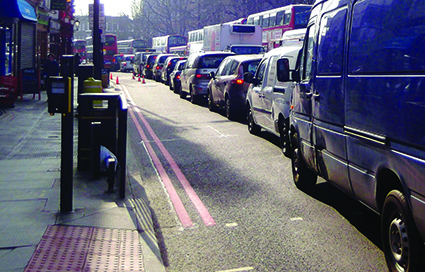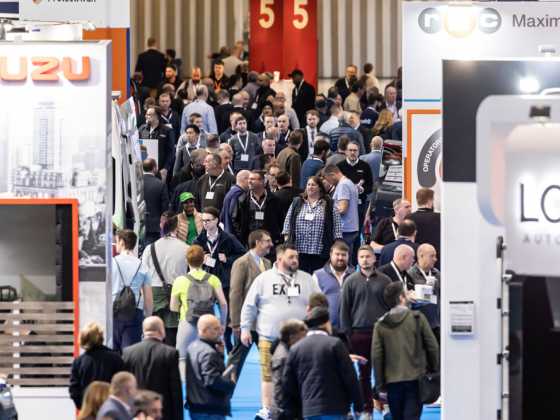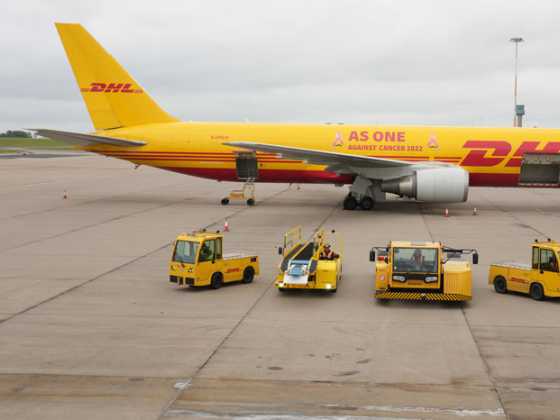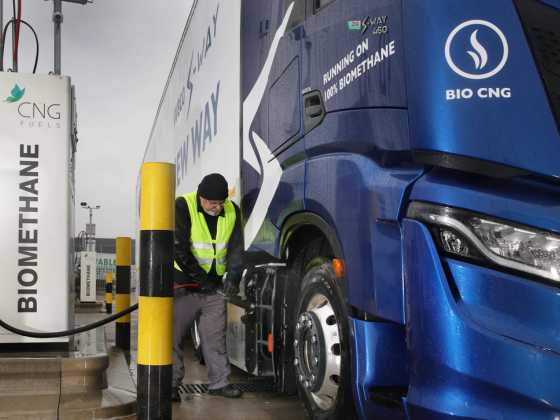Vans operating in Clean Air Zones

Research shows that more than a quarter of businesses which use vans are not aware of plans for Clean Air Zones. But with just over a year to go until they become operational, what can van and truck fleets do to prepare?
Several cities across the UK that exceed legal air pollution limits are working on plans to implement Clean Air Zones (CAZs) by 2020, which may charge the drivers of higher emission petrol and diesel vehicles to drive into city centres.
Clean Air Zones are being made compulsory in Birmingham, Derby, Southampton, Leeds, and Nottingham. London has its own plans, the Ultra Low Emission Zone, which comes into force in April 2019.
However, research shows that more than a quarter of businesses which use vans are not aware of the plans.
The survey of 677 businesses that use vans, carried out by independent agency IFF Research for Northgate Vehicle Hire, shows that nationally, 29 per cent do not know about the CAZ initiative. Of those who were aware of CAZ, more than half (55 per cent) said they expect the move will affect their businesses.
Looking to specific areas, 20 per cent of firms using vans in Birmingham, 28 per cent using vans in Leeds, 27 per cent using vans in Derby and 23 per cent using vans in Southampton did not know about plans for Clean Air Zones.
Of those who were aware of CAZ, 60 per cent in Birmingham, 54 per cent in Derby, 50 per cent in Leeds, and 52 per cent in Southampton said the move would affect their business
Tim Bailey, fleet director of Northgate Vehicle Hire, said: “Vans are critical to the success of UK PLC, so it is worrying that users from builders to home delivery companies are not aware of these changes, less than two years before CAZs are due to start.
“Van drivers are facing a perfect storm. The SMMT says that 99 per cent still run on diesel, which is being hit by increasing fuel prices and taxes. Yet for many businesses, new technologies such as electric vehicles just are not ready to meet their needs – deemed as unaffordable, or incapable of covering sufficient distances between charges.”
“While we support efforts to reduce emissions, we believe that government needs to find a balance between tackling emissions while supporting Vankind. That means not just charging people for driving older vans, but also incentivising people to acquire alternatives, and investing in public transport.”
Hauliers
This sentiment is echoed by a coalition of trade bodies representing hauliers, comprising the Road Haulage Association (RHA), British Vehicle Rental & Leasing Association (BVRLA), Freight Transport Association (FTA) and National Franchised Dealers Association (NFDA).
The coalition is concerned that local authorities are rushing through CAZ plans with little consideration for hauliers. This is despite the haulage industry nearly halving its NOx emissions in four years, they say.
The trade bodies have come up with a plan, ‘The Way Forward’, which sets out recommendations to help improve air quality whilst protecting haulage from charges and bureaucracy. It wants the government to put in place consistent CAZ operating standards, smarter use of road space, and a phased approach supporting the transition to cleaner vehicles that doesn’t put operators out of business.
London’s ULEZ
London’s Ultra-Low Emission Zone (ULEZ), which comes into effect in April 2019, will be expanded up to the North and South Circular boundary in 2021.
This will be an area 18 times larger than the Central London Ultra Low Emission Zone.
It will operate on top of the congestion charge, 24 hours a day, seven days a week, 365 days a year.
Drivers within the zone using non-compliant vehicles will pay a daily ULEZ charge of £12.50.
These include motorbikes that do not meet Euro 3 standards; petrol cars and vans that do not meet Euro 4 standards and diesel cars and vans that do not meet Euro 6 standards.
Diesel buses, coaches and lorries will need to meet the Euro 6 standard.
What can fleets do?
To prepare for clean air measures, fleet operators should review their vehicles to ensure they are compliant if they must operate in and out of Clean Air Zones.
If vehicles are diesel, they should be Euro 6. Otherwise, where feasible, alternatively fuelled vehicles should be introduced.
An OLEV grant is available for vans, giving 20 per cent off the purchase price for these vehicles, up to a maximum of £8,000. It applies for vehicles that have CO2 emissions of less than 75g/km and can travel at least 16km (10 miles) without any emissions at all.
Otherwise, for logistics firms that operate in and out of clean air zones, one method of avoiding the impact of charges could be to establish a delivery hub outside of the city centre and make use of greener last-mile delivery firms.
It is one measure that the government is keen to hear more on. Earlier in the year, the DfT launched a consultation into greening last mile deliveries to understand the scale of opportunity as well as some of the current barriers to delivering goods more sustainably.
It explored how electrically powered e-vans, micro vehicles and e-cargo bikes can provide better service to customers for cargo in comparison to light commercial vehicles.
It asked for evidence into the scale of the potential environmental and other benefits, as well as the barriers. It also asked what incentives might be appropriate to encourage a large-scale shift to clean, last-mile delivery options and measures to improve logistical efficiency, such as urban consolidation centres.
The call for evidence acknowledged that there are a number of considerations concerning the scale and nature of zero-emission last mile deliveries. The UK’s current reliance on conventionally-fuelled vehicles is estimated to be 300,000 HGVs and over 4,000,000 vans.
Range of loads need to be considered; commodities are extremely varied and can include anything from medicines and food, to building materials.
The size of fleet operators also needs to be considered; there are many smaller operators where efficiencies of scale are limited and over 90 per cent of licensed operators have fewer than 61 vehicles.
The consultation has come to a close and the feedback is being analysed.
Meanwhile, to support the use of e-cargo bikes as an alternative to using older vans for city centre deliveries, the Department for Transport and the Office for Low Emission Vehicles are putting in £2 million of funding.
Electric vans
Sixteen van operators have recently pledged to switch to electric vehicles by signing up to the Clean Van Commitment, run by environmental charity, Global Action Plan.
They include Tesco, Engie, Anglian Water, Leeds City Council, Network Rail and Yorkshire Ambulance Service.
These fleet operators will be investing an initial £40 million over the next two years, purchasing 2,400 electric vans, to signal to manufacturers that the demand is there.
The DfT backed Clean Van Commitment is creating a clear signal to government, manufacturers and the National Grid that there is demand for electric vans and they are committed to immediately delivering zero tailpipe emissions.






